Samsung NX200 review
Can the Samsung NX200 interchangable lens camera take on the Sony NEX-7?

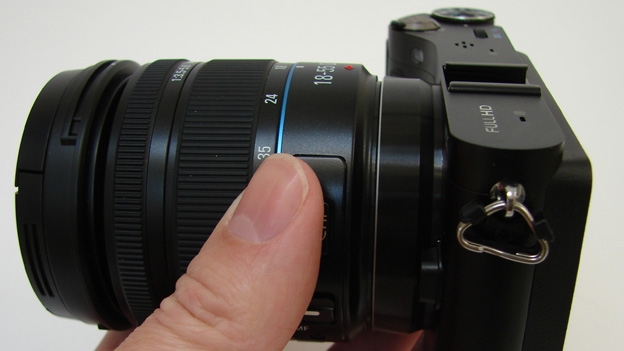
-
+
High resolution
-
+
Good build quality
-
+
Functionality built into lens
-
-
No built-in flash
-
-
No viewfinder
-
-
Busy scenes confuse autofocus
Why you can trust T3

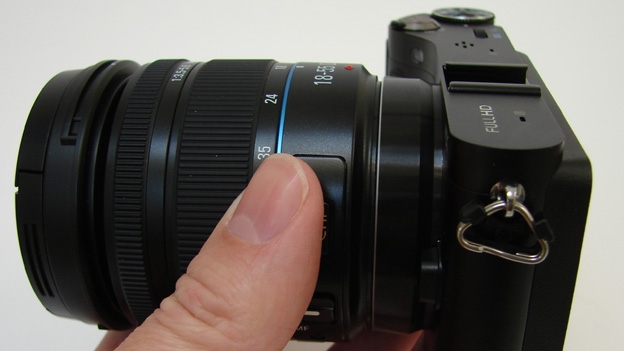
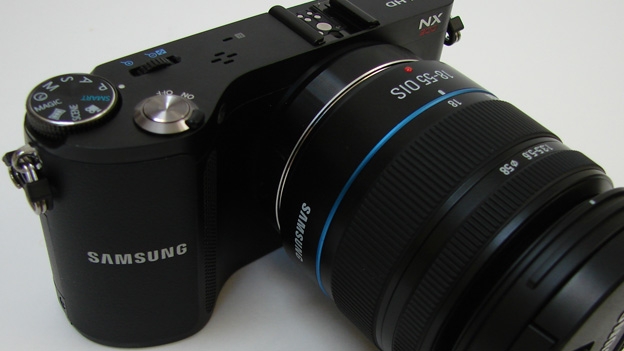
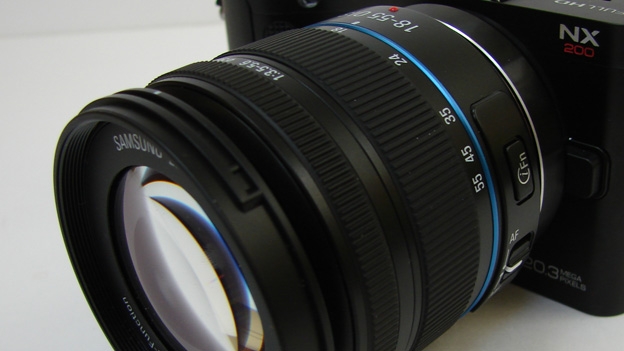
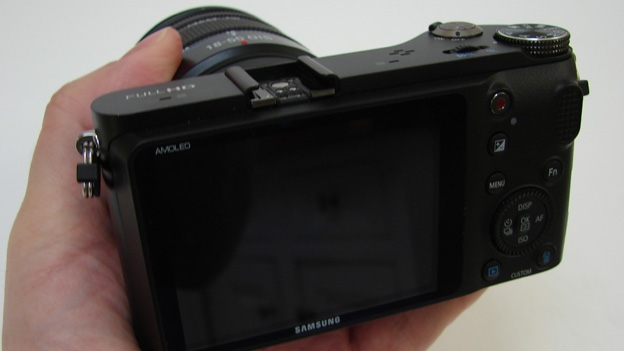
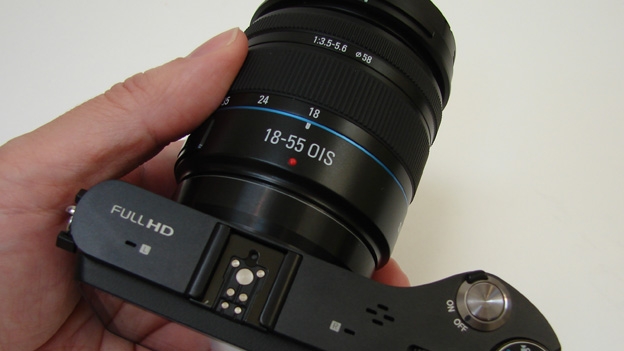
The Samsung NX200 iterchangeable lens camera offers one of the highest resolutions around but can its performance match up to rivals like the Sony NEX-7?
The Samsung NX200 follows on from last year's Samsung NX100 and is second only to the Sony NEX-7 in terms of offering a high 20.3 megapixel resolution from an APS-C sized sensor, as formerly only featured in an actual digital SLR.
There's no built-in flash, instead Samsung provides a vacant hotshoe for slipping on an small external flash bundled in the box. Unlike the Sony and Nikon V1 there's also no electronic viewfinder to use instead of the fixed backscreen.
However the large sensor remains an enticing selling point. Most rival interchangeable lens compacts offer light gathering chips only slightly bigger than those found in regular pocket point and shoots. The larger sensor in theory provides better quality pictures and video, which is what Samsung's aiming for here.
Like the Sony, that means that the lenses needed to make the most of the properties of the sensor are also necessarily larger than competing systems, especially when Samsung's 18-55mm kit zoom does not feature a retractable locking mechanism – as found on kit zooms bundled with the Olympus Pen and Nikon 1 ranges – to make the lenssmaller when not in use.
Given the pixel count offered, a £699 asking price that includes the lens seems quite fair however, especially as online and street prices will be cheaper still. So how does it otherwise measure up?
Samsung NX200: Controls
Thanks to the iFunction button featuring on the lens, where a practical switch for flicking between auto and manual focusing is also found, users of the NX200 don't always have to drill down into menu screens to find the settings required.
Press the 'iFn' button, for example, and adjust exposure compensation with the aid of a virtual dial that appears bottom of screen in tandem with a twist of the lens focus ring. This acts as both a time saver and a means of controlling the camera. Use of the NX200 therefore feels more 'hands on' than a basic snapper, and closer to the way a DSLR is handled.
And, whereas the latest trend has been to bury shooting modes within menu screens for a more minimalist outward appearance, the NX200 handily features a physical dial up top. Included here are the usual creative quartet of controls allowing manual adjustment; namely program, aperture priority, shutter priority and full manual mode.
For the point and shoot photographer there's also Smart Auto, which compares scenes and subjects with on board parameters and adjusts settings automatically.
Movie mode, scene modes, panorama mode (2D or 3D options), plus a range of 'Magic Frames' and Smart Filters (digital effects filters essentially) are also included on the dial.
Most interestingly the last setting is Lens Priority mode, which allows the lens to govern a wider array of settings – namely select various scene modes and digital effects filters with a turn of the focus ring. Again this speeds up operation.
Generally the control layout of the NX200 gives the impression that this camera offers a halfway point between a compact pocket snapshot and a fully-blown digital SLR. In other words it's pitched just about right.
Get all the latest news, reviews, deals and buying guides on gorgeous tech, home and active products from the T3 experts
Samsung NX200: Screen
As on previous Samsung NX models, the 3-inch, 614k-dot resolution AMOLED screen delivers the real wow factor here, offering sufficient contrast to provide an almost 3D-like depth and appearance that's closest to real life, in that respect proving a match for the OLED screen found on the flagship Olympus E-P3 compact system camera.
The 'danger' here though is that the user starts believing the shots are, in some ways, better than they actually are in terms of a life-like rendition of the scene, and once downloaded to a computer, the lack of comparable vibrancy disappoints.
Though as there is no optical or electronic viewfinder to fall back on, we're hardly going to grumble about a high quality screen via which to help set up the shot in the first place.
Samsung NX200: Battery
The NX200 comes bundled with a BP1030 lithium ion rechargeable battery out of the box, plus a dedicated mains charger to get things up and running. In lasting approximately 320 shots from a full charge, the NX200 gives an acceptable performance that compares well with close rivals, such as the much pricier Sony NEX-7 at 335 shots, whilst not being especially standout.
Samsung NX200: Image quality
Like a semi pro DSLR the NX200 provides sensor cleaning on power up, in case any bits of dust have found their way on to the chip when swapping lenses, which can otherwise show up as black 'spots' on an image. Armed with this peace of mind we were ready to go and take pictures.
Though generally results are sharp with the kit lens and sensor combo, on dull days the Samsung NX200 verges on the side of over exposure, occasionally blowing highlight detail. We pushed the ISO up to the maximum and noticed at ISO1600 and above noise/grain intruding.
Though we were happy with the appearance at ISO1600, we were less so progressively at ISO3200, ISO6400 and top whack ISO12800, at which point we were getting quite a gritty look and obviously softened detail. In a similar setting the Sony NEX-7 seemed to handle noise a lot better – but then it is nearly twice the price of this Samsung...
Alternatively, here video is a maximum 1920x1080 pixels with stereo sound at 30fps, or you can opt for 60fps at 1280x720 pixels instead. Shooting video merely involves a press of the dedicated backplate record button, at which point the screen display instantly narrows to display a 16:9 ratio image. Though generally the video performance is
smooth, like any camera the NX200's auto focus can be momentarily confused by busy scenes, so in such circumstances there's a moment or two's wait while the lens mechanics flutter around attempting to lock on target. Of course you can always opt to manually focus instead if you've the confidence.
Samsung NX200: Verdict
For those for whom a large sensor with equally large resolution is high on their wish list, but not the bulk of an actual DSLR, the Samsung NX200 will be very enticing.
With an ISO range that reaches an almost see-in-the-dark ISO12800 we also get 3D panoramas, plus, more unusually, the ability to control some of the camera's key features via an 'iFunction' button set into the bundled lens.
The Samsung is a whole lot cheaper than the Sony too at £699, and that includes optically stabilised 18-55mm kit zoom provided for our test. The camera body is less blocky, with a comfortably curvaceous grip, yet a metal build that subconsciously suggests that this is a camera that's built to last when it's gripped in the palm.
The Samsung NX200 may be the budget option when compared to the Sony NEX-7, the very best of what's out there, but given what you get for your money it's not purely a case of second best.
Samsung NX200 vailability: Available now
Samsung NX200 price: £699.99

Gavin Stoker has been writing about photography and technology for the past 20 years. He currently edits the trade magazine British Photographic Industry News - BPI News for short - which is a member of TIPA, the international Technical Imaging Press Association.